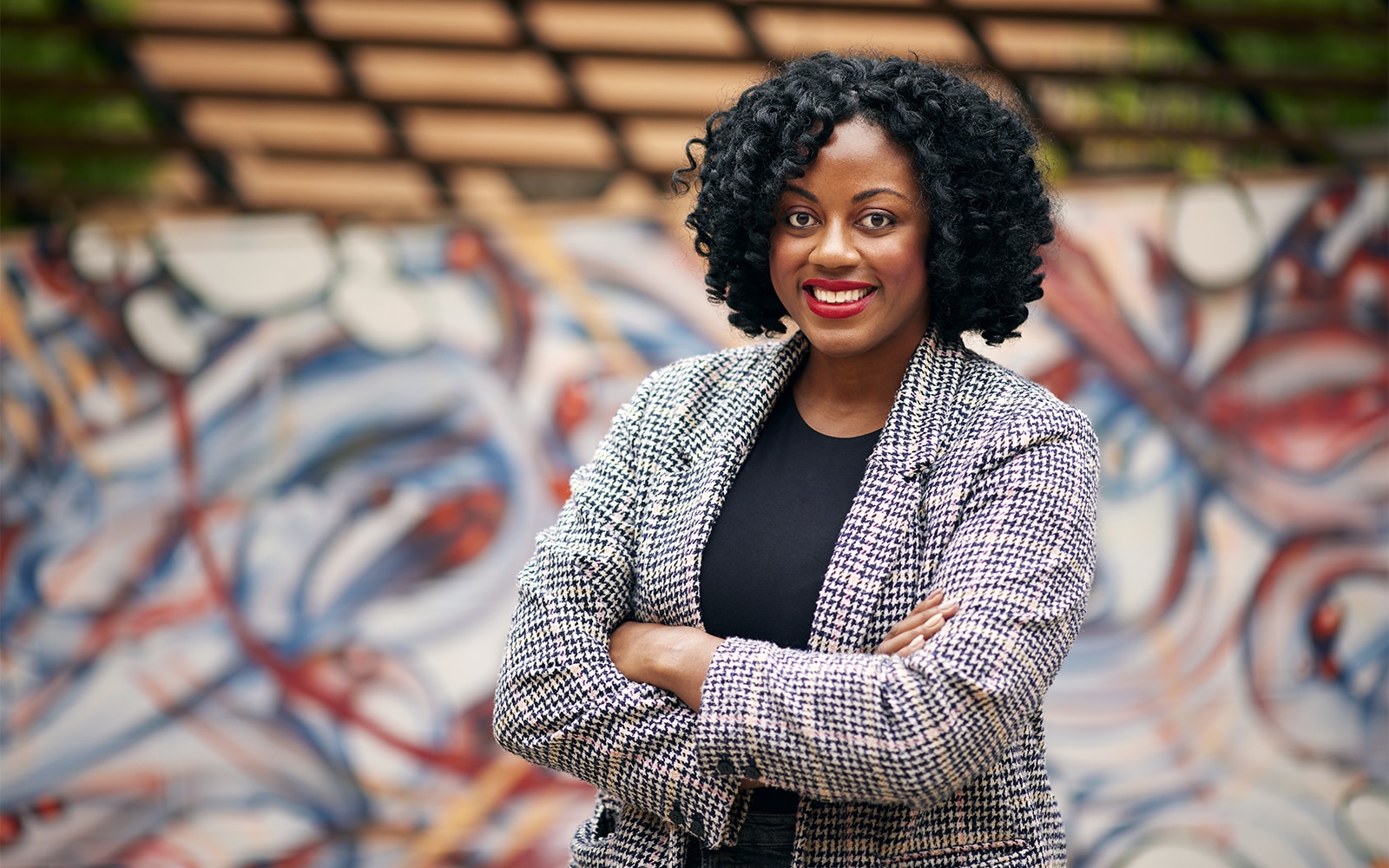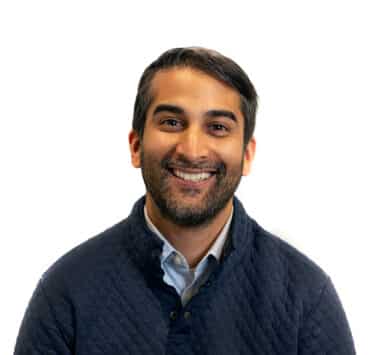|
Getting your Trinity Audio player ready...
|
Lauren Buford has a funny way of explaining her litigation approach.
“I’m not an adversarial person,” the senior counsel for tort litigation at Walgreens says. “It is not in my nature in any way, shape, or form.
Just like her practice, Buford’s outlook becomes clearer with context.
“I’ve always looked at my role with a more holistic perspective, rather than just a plaintiff and a defendant,” she explains. “I see myself as a problem solver, and, therefore, I need to consider what other cases might be similar. How does the state of the world impact this case, what is the venue, and who else has interests in this case? I try and maintain a perspective that doesn’t just exist in a vacuum.”
In a sea of lawyers, Buford is one-in-a-million. But she’s used to it.
“I’m a Black, female attorney, and I’m also a member of the LGBTQ+ community,” Buford says. “I know the number of people who look like me and have this identity are practically microscopic in law, but we are here.”
Buford grew up in California surrounded by diversity. As an undergrad at the University of Southern California, Buford comprised part of the school’s rowing team. There was very little diversity, but it didn’t faze Buford. She went on to attend law school at Indiana University. Yet again, representation wasn’t incredible, but Buford still blossomed.
“It wasn’t until I went into private practice that the culture shock really hit me,” she says. “Not private school, not the rowing team, not law school. Nothing really prepared me for that. It was like being thrown in the deep end and expected to swim.”

The year 2007 is a world apart from lawyers entering the firm world today. Buford’s class of associates was incredibly diverse, but there was significant disconnect between the incoming class and the firm’s leaders of color.
“You have to place this situation in the context of the time,” Buford explains. “Assimilation was really the only way for people of color to make headway in the working world for a very long time. As things have evolved, I don’t think my generation was ready to hear that. We wanted to be ourselves, and there was definitely some friction there.”
“I’ve always looked at my role with a more holistic perspective, rather than just a plaintiff and a defendant.”
Lauren Buford
The differences between millennials and baby boomers have long been the subject of think pieces and magazine cover stories, but the way those differences have affected issues of diversity and inclusion bear far more examination. “The best way I heard it described is that diversity is being invited to the party, and inclusion is being asked to dance,” Buford says. “The generation before us had to fight hard just to get invited to the party, but that’s where things kind of stopped.”
The issue of identity and self is critical for Buford, as it was something she downplayed for so long in her life. She says she spent far more time figuring out her life, school, and career plans, as opposed to thinking more broadly about herself as a person.
That doesn’t mean her career has slowed in any regard. Buford traversed between firm work and in-house roles at Chicago Public Schools and the Chicago Transit Authority. While working in private practice in 2020, Buford wrote an article, “The Law & This Moment,” for the Women’s Bar Association of Illinois.
The reflection on the murder of George Floyd, the COVID-19 pandemic, and the trepidation experienced by Black lawyers drew the attention of Chicago’s Loyola University School of Law, who asked Buford to teach a class titled “Professional Identify Formation.” The course aims to help students recognize and eliminate personal bias, as well as build awareness regarding the criticality of diversity and inclusion to professional development and the practice of law.
“I’m in the middle of year three, and it’s been amazing,” Buford says. “Everyone has some level of privilege, and this gives us all the opportunity to get down to the core of what that is and how your biases and privilege impact you and your decision making.”
Along with her adjunct duties, Buford joined Walgreens in September 2021, and she thinks this time, she’s in-house for good. “When I had to consider this job offer, I had to think about whether or not I was at peace with the idea of not handling day-to-day litigation, deposing people, and being at court every single day,” the lawyer admits. “I felt completely at peace with it. This feels like a whole new chapter of my career.”
“The generation before us had to fight hard just to get invited to the party, but that’s where things kind of stopped.”
Lauren Buford
That isn’t to say the transition has been without challenges. The multinational company employs more than 225,000 people. The work of the job is the easy part: discovery, strategy, record, review, and making determinations. The harder part is learning the ins and outs of such a large employer that continues its own transformation. “I’m learning new things about this company every day,” Buford says. “I don’t think that education is ever going to stop.”
Buford knows she’s unique in her identity, but it doesn’t keep her from mentoring those around her. She always makes herself available for a phone call or casual conversation to help young lawyers or law students of color.
There might be no true preparation for the culture shock people of color face when entering a career in the law. However, Buford’s willingness to talk about it and shepherd others through their journeys ensures that transition is just a little easier for those coming after her.
Johnson & Bell, Ltd:
“Lauren Buford adds years of experience as a trial lawyer to the Walgreen Tort Litigation team. Her experience gives Lauren the unique ability to evaluate complex cases and assist counsel with strategic decisions and trial strategy. We look forward to working with Lauren in the coming years.”
–John A. Childers, Shareholder
Barnes & Thornburg LLP:
“Lauren’s vast and varied experience as a lawyer is immediately apparent. She navigates the complexities of her work with a sense of diligence, pragmatism, strategy, and humor. We’re honored to partner with her in defending Walgreens.”
–Kristen L. Richer, Partner
Expertise Spotlight
At Barnes & Thornburg, our clients have access to over 800 legal professionals throughout 22 offices in Boston, California, Delaware, Georgia, Illinois, Indiana, Michigan, Minnesota, New Jersey, New York, Ohio, Philadelphia, Raleigh, Salt Lake City, Texas, and Washington, D.C. We bring forward a team of experienced product liability and mass tort litigators that is prepared to handle the many challenges presented by the complex and ever-evolving landscape of complex and consolidated litigations.
Barnes & Thornburg serves as global and national coordinating counsel for major manufacturers across the pharmaceutical and medical device, toxic tort, consumer product, technology, and retail sectors. We have defended Fortune 500 manufacturers in sophisticated product liability matters across nearly every industry – including pharmaceuticals, medical devices, chemicals, appliances, automotive products, heavy industry, cosmetics, and consumer products – in single-plaintiff cases to 10,000-plus claim multidistrict litigations (MDLs).


